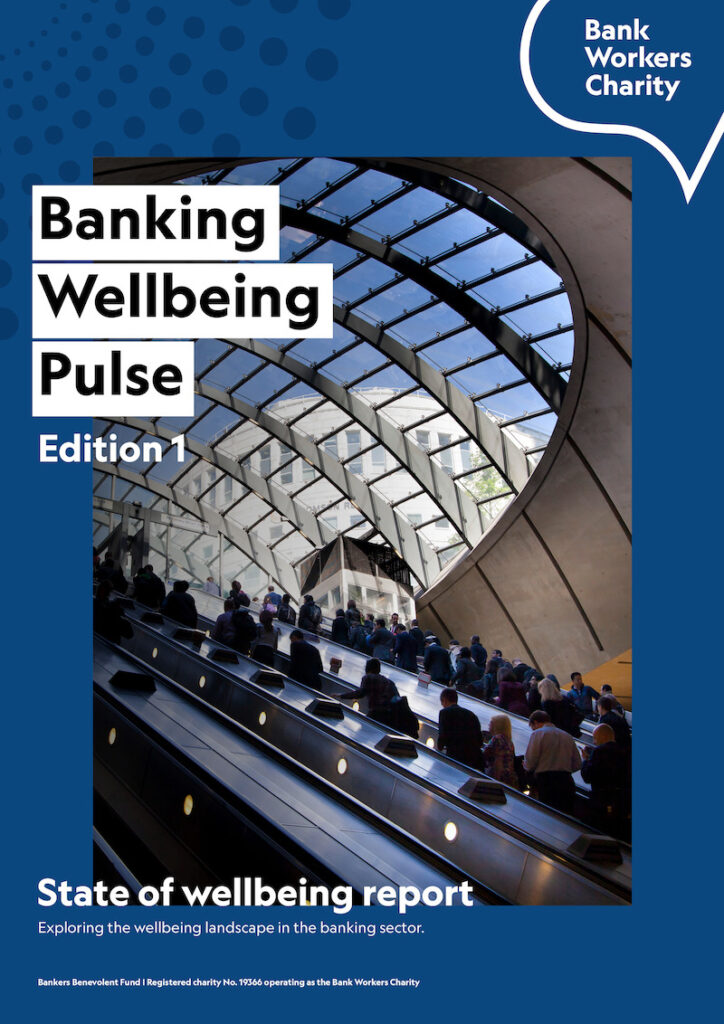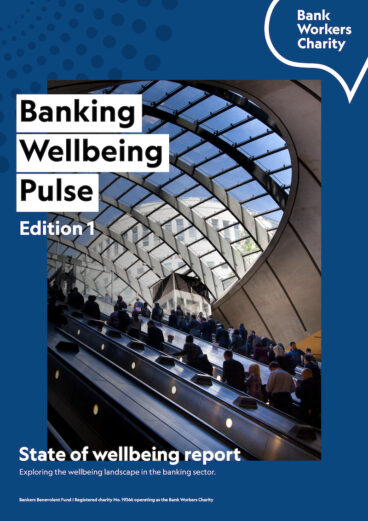I’m worrying how I’m going to afford petrol. Crying in the car after the food shop because it’s cost too much and now I can’t pay the bills. Already maxed out the credit card by putting the school dinners on it... fearful for the 6 week holiday and the need to find nearly £800 for childcare, as universal credit refuse to pay childcare in advance. I work full time and a single parent – what more can I do?
- Cost-of-living responses in the UK, a report by the University of York
The cost-of-living crisis is hitting people hard and being in work doesn’t protect against its consequences. It’s hard to think of any other event in modern times that has had such a negative impact on the wellbeing of the UK population. We’ll see shortly just how profound this has been, particularly on our financial wellbeing. But first let’s take a step back, because for so many people, the roots of the crisis lie in our recent economic history.
The Resolution Foundation refers to the period between 2010 and 2020 as the longest period of slow wage growth since Napoleonic times. In fact they say that after 15 years of virtual wage stagnation, the average UK worker is around £11,000 a year worse off.
50
of UK employees regularly borrowed money to meet everyday living expenses in 2018

The backstory
The reality is that lots of people were struggling even before inflation soared and that’s something we are acutely aware of at the Bank Workers Charity, through our work with the banking community.
For many, personal finances had already become precarious. And with the cost-of-living crisis coming quickly on the heels of the COVID pandemic, things have worsened considerably. More people are depending on food banks than ever before in Britain, and others are resorting to desperate measures to try and shore up their finances.
Resorting to desperate measures
1/10
people have cashed in all or part of their pension contributions, or plan to do so in future
5.2m
workers have taken on an additional job to make ends meet, and a further 10 million plan to
88
of consumers plan to cut back on spending to April 2024
Sources : Royal London , Grant Thornton
Who has been affected?
Unsurprisingly, people have been affected differently by the cost-of-living crisis, with some groups hit particularly hard. According to the Office of National Statistics, renters and young adults have been amongst those worst affected, with one in 20 saying they had run out of food in the past two weeks and couldn’t afford more.
Other research has found that by almost every financial measure, families with children have been among the worst affected by the country’s high inflation. They found that a fifth of these households were classed as being in ‘serious financial difficulty’. They were six times more likely to have a pay-as-you-go energy meter and to have resorted to informal lenders or loan sharks as households without children. They were also twice as likely to be in arrears on rent or mortgage payments and three times as likely to be behind on bills.
Worst affected of all family groups were lone parents (as we saw from our quote earlier) with more than a quarter finding themselves in serious financial difficulty. Other demographics experiencing hardship include people with pre-existing mental health problems, those with disabilities and people in social housing.
And what of employees? According to CIPD things have worsened significantly for workers over the course of the cost-of-living crisis.
61% said they were keeping up with all their bills and credit commitments.
63% reported that their pay was enough to cope with an unexpected financial emergency costing £300.
48% said they were keeping up with all their bills and credit commitments.
49% reported that their pay was enough to cope with an unexpected financial emergency costing £300.
In the section of this report “What our data is telling us”, we reveal how the cost-of-living crisis has impacted the banking community, as viewed through their use of the charity’s resources. Bank employees are, of course, just as exposed to the prevailing economic crosscurrents as any other sector within the UK workforce, so we weren’t surprised to experience a big surge in requests for financial guidance and support. We don’t anticipate this changing in the near future.
The impact on health and wellbeing
Whilst all of this represents a major blow to the financial wellbeing of many, the negative impact on wellbeing overall extends much beyond that.
Because our wellbeing is interconnected, when something affects one area of our wellbeing, it nearly always has repercussions in other areas too. The relationship between financial worries and mental ill-health is long established and well understood. You’re five times more likely to suffer with depression if you have money problems. And in November 2023 research from the Mental Health Foundation found that almost a third of adults felt anxious in the last month due to their financial situation; one in ten felt hopeless.
Relationships almost invariably come under duress when people are financially pressed and the age demographic currently most affected is younger adults aged between 18 – 34. Nearly four in ten of this age group reported that their relationship with their partner was under significant strain due to the cost-of-living crisis.
30
of people are losing sleep due to money worries
Of course, money problems have a major impact on people’s social wellbeing, as they can’t afford to participate in so many of the activities that lead to a rewarding social life. And here, the stigma around money worries is particularly damaging, as people will go to extraordinary lengths to hide their financial difficulties, often preferring for others to view them as stingy or unfriendly, rather than admit that their financial problems won’t allow them to join in. And the links between poor social wellbeing and mental ill-health are particularly strong which makes the findings of Mind particularly concerning.
25
of people felt their financial problems excluded them from the social activities that help to keep them mentally well
That’s why, in so many ways, the cost-of-living crisis is as much a health crisis as a financial one. In fact, the consequences may be grimmer than we appreciate, because British Medical Journal modelling suggests that the number of people dying early, (before reaching 75), is going to increase by 6.5%. It will be the poorest of households that will be hit.

Banks and financial wellbeing
Banks are very aware of the impact of the cost-of-living crisis on their people. This is because most have been prioritising financial wellbeing for a number of years. Some have been including financial wellbeing questions within their employee engagement surveys and they’ve been able to slice and dice the data to understand the impact of money problems on their people, identifying which areas of the business employed the most staff whose finances were precarious.
Focusing on financial wellbeing early meant many banks already had financial wellbeing programmes in place before the cost-of-living crisis hit and were encouraging employees to take steps towards sound money management. Once the economic situation worsened in 2021 and food and fuel prices soared, banks were among the first corporations to make extraordinary payments or award pay increases to ease the burden on employees. In a parallel move, most made financial wellbeing the major focus of internal wellbeing campaigns and put in place further financial wellbeing programmes, some reactive and some preventative. For most banks financial education programmes and interactive financial tools are now a routine feature of their wellbeing provision and some offer one-to-one chats with financial experts to explore financial concerns.
An end in sight?
The cost-of-living crisis will continue to represent a major challenge to household finances and to wellbeing. Economists vary on when the crisis will end, with some expecting things to ease in early 2024, whilst others believe it is going to extend to the end of the year.
The situation is complicated by the fact that, though food inflation has slowed, mortgage renewals are proving very costly, and rents have soared. It will also take some time for fuel costs to reduce to more manageable levels. What all economists agree on is that the improvement will be gradual, with real wages not likely to return to 2008 levels until 2027. This means that financial wellbeing issues will remain uppermost in the minds of most people, and we’ll continue to see them dominate the ways that our community seek help from the Bank Workers Charity.
Next up in this edition…


